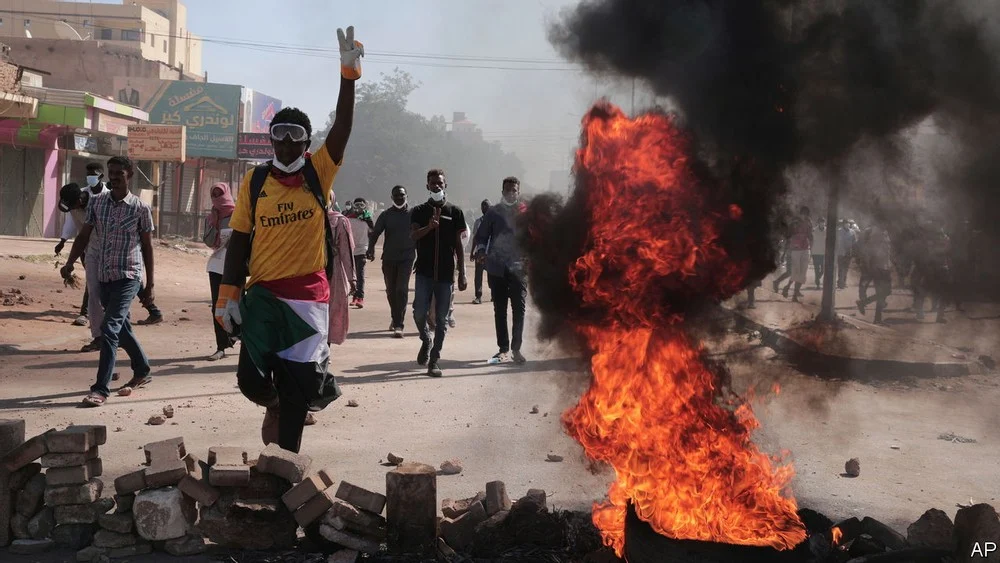ON JANUARY 2ND the prime minister of Sudan resigned in despair after another day of street protests against the government. Abdalla Hamdok had managed barely six weeks in office. He accepted the post reluctantly, after being released from detention and reinstated by the same army that had originally deposed him after a coup on October 25th. The amiable former economist had hoped taking the role would forestall violent confrontation between his own activists, campaigning for democracy, and the callous General Abdel Fattah al-Burhan. Instead, Mr Hamdok ended up with the worst of all worlds. His erstwhile supporters, accusing him of lending a semblance of legitimacy to the putschists, took to the streets in ever-larger numbers. The army, meanwhile, ignored his attempts at moderation and mowed them down. More than 50 protesters have been killed since October.

Thus Sudan is at a familiar impasse, subject to the whims of a brutal military regime after a coup. On a continent with a bad record in this respect, Sudan is in a class of its own, with six coups and 10 failed attempts since independence in 1956 (see map). Moreover, the churn has accelerated since General Omar al-Bashir, indicted for genocide, was toppled by a popular revolution in April 2019. The army struck back almost immediately, killing scores of people. An uneasy alliance of generals and technocrats, headed by Mr Hamdok, governed from August 2019 up to the coup last October. That so-called transitional government was supposed to pave the way to elections. They now look further off than ever.
Since independence Sudan has been governed, with only occasional breaks, by an Arab elite in Khartoum, bent on plundering the country’s considerable wealth at the expense of its people. Their rule, exercised through the army, has been cloaked in the language of Islam; it is really a kleptocracy. The consequence is a country beset by wars and conflict between the centre and the immiserated peripheries. The army and its allied militias, notably the Rapid Support Forces, have used their power to carve out swathes of the economy for themselves, well beyond defence industries. Civilian rule, bringing transparency, as well as democracy, would threaten those financial interests. Mr Hamdok, cheered on by the West, was initially overthrown after trying to subject this vast military-industrial complex to an audit, of sorts. The kleptocracy struck back.
An added complication is Russia’s support for the generals. Wagner, a mercenary outfit acting in the interests of the Kremlin, has supplied training for militias and other goodies; Russia has also shielded Sudan at the UN, playing its usual spoiler role against the West. China’s extensive investments in Sudan have also afforded the army protection; China favours stability over good governance. The victims of decades of misrule are ordinary Sudanese. Facing inflation rates of over 100%, almost a quarter of the population can barely feed themselves and millions live in refugee camps. By contrast, the elites seem to get by. Mr al-Bashir, for one, was caught with $130m worth of cash in sacks at home after he was ousted. Little wonder they will fight to preserve the status quo.
By The Economist





